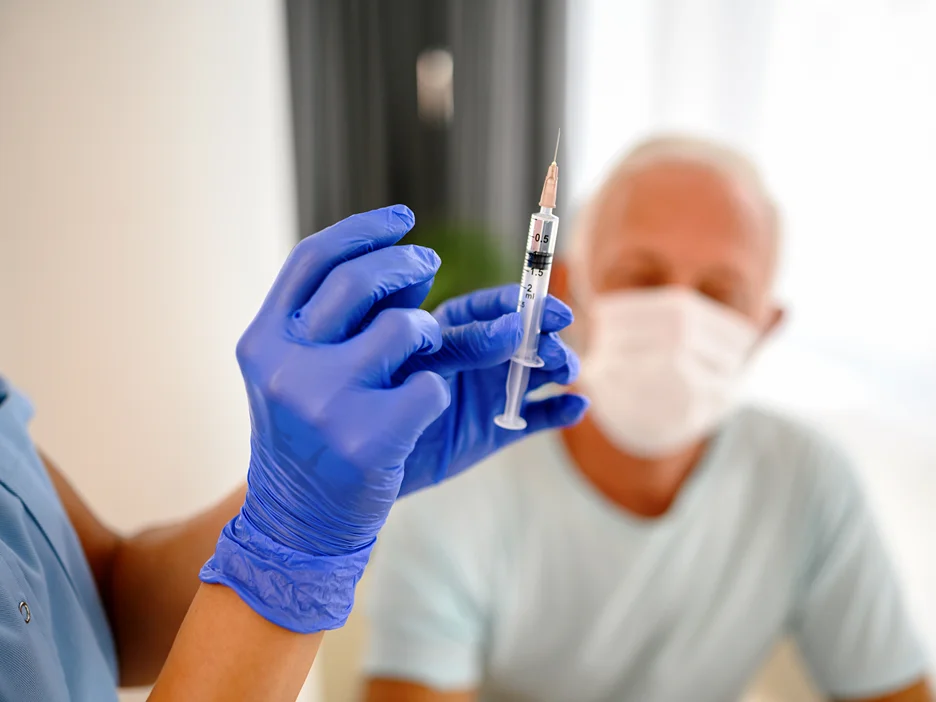When it comes to protection against infectious diseases, both natural immunity and vaccination are important factors.
Natural immunity is obtained after being infected with a virus or bacteria, while vaccination provides protection through weakened or inactive components of the virus or bacteria.
Both natural immunity and vaccination can prevent reinfection and reduce illness severity.
However, they have different advantages and risks.
Here we will explore the differences between natural immunity and vaccination and their potential benefits.
Natural Immunity
The extent of natural immunity can depend on the severity of infection, timing, and exposure to new variants.
People who have had a mild case of a disease may have less protection than those who had a severe case.
Natural immunity may not protect against new variants of the virus or bacteria.
However, natural immunity has some advantages over vaccination.
It is free and does not require a medical intervention.
Furthermore, it may provide broad protection against different strains of the virus or bacteria.
Nevertheless, relying solely on natural immunity for protection may not be practical for severe diseases or those with high complications.
Vaccination
Vaccination may provide more consistent and longer-lasting immunity than natural immunity.
It can protect against multiple variants of a virus or bacteria.
Vaccines are formulated to trigger an immune response without causing disease, so vaccinated individuals can have protection against a disease without getting sick from it.
Nonetheless, vaccines may have some risks such as allergic reactions or side effects.
Some individuals may also be hesitant to get vaccinated due to concerns about the vaccine’s safety or efficacy.
Natural Immunity vs Vaccination: Comparing Their Efficacy Against COVID-19

As some parts of the world continue to grapple with the COVID-19 pandemic, there has been debates on the effectiveness of natural immunity versus vaccination in preventing reinfection and reducing the severity of illness.
Here are three ways to compare natural immunity with vaccination against COVID-19:
Preventing Reinfection
One way to compare natural immunity with vaccination is to look at their ability to prevent reinfection by different strains of COVID-19.
Studies have shown that natural immunity may provide protection against some strains of the virus, but it may not be as effective against newer variants.
In contrast, vaccines have been designed to protect against multiple strains of COVID-19, including newer variants.
Reducing Severe Outcomes
Another way to compare natural immunity with vaccination is to look at how well they prevent severe outcomes such as hospitalization and death from COVID-19.
Studies have found that natural immunity may provide some protection against severe outcomes, but it may not be as effective as vaccination.
In comparison, vaccination has been shown to significantly reduce the risk of severe illness, hospitalization, and death from COVID-19.
Preventing Transmission
A third way to compare natural immunity with vaccination is to look at how they affect the transmission of COVID-19 to others.
Natural immunity may not be as effective in preventing transmission of the virus to others, as infected individuals may still be able to spread the virus even if they have developed some level of immunity.
In contrast, vaccination has been shown to significantly reduce the risk of transmitting the virus to others, which can help to control the spread of the disease in the community.
Natural Immunity vs Vaccination: Does One Offer Better Protection?
Natural immunity and vaccination both offer good protection against COVID-19, but the type of protection they provide can be different.
Natural immunity is acquired through infection with the virus and is usually more robust than vaccine-induced immunity, which is acquired through vaccines.
However, natural immunity can be short-lived and may not provide the same protection against new variants of the virus.
Vaccination, on the other hand, is more likely to provide protection against new variants of the virus and may provide longer-lasting protection. Therefore, the best way to protect yourself against the virus is to receive a vaccine and get regular updates on new variants of the virus.
Natural vs Artificial Immunity
Natural immunity is the body’s ability to recognize and fight off foreign invaders using white blood cells and antibodies.
White blood cells, also called leukocytes, are the primary defenders of the immune system.
They move throughout the body, identifying and destroying foreign invaders.
Antibodies are proteins that recognize specific foreign invaders and alert the white blood cells to destroy them.
This form of immunity is acquired naturally over time as the body is exposed to different foreign invaders.
Artificial immunity is the body’s ability to gain protection from foreign invaders through external means, such as vaccines or antibodies from another person or animal.
Vaccines contain weakened or dead versions of a pathogen that the body can recognize and respond to.
This helps the body to develop an immunity to the pathogen and be able to fight off a future infection.
Antibodies from another person or animal can also be transferred to a person to help them gain immunity to a specific pathogen.
This form of immunity is acquired artificially and does not require the body to be exposed to the pathogen.
Do Vaccines Weaken Natural Immunity?
Vaccines work by introducing a weakened or inactive form of a virus or bacteria to the body.
This helps the immune system create antibodies, so it’s ready to fight off disease in future.
Moreover, vaccines are safer than actual exposure.
They contain only a weakened form of the virus or bacteria and can’t cause serious illness.
Getting sick from real exposure could be much more dangerous.
Ultimately, vaccines increase rather than decrease natural immunity and help protect us from dangerous illnesses.
A Safer Way To Build Immunity
Actual exposure to viruses and bacteria carries health risks that vaccines don’t have.
Vaccines provide a much safer way for the body to build up immunity against them.
Instead of getting sick from the disease, people injecting it build resistance without any serious illness occurring.
With vaccines, we know exactly what kind of virus or bacteria is being exposed to the body.
With actual exposure one could contract an unknown version of a disease that could be more severe than expected.
Overall, vaccinations are an effective and safe way for individuals to build their natural immunity against diseases like flu, measles and chickenpox without worrying about serious illness occurring.
Does Natural Immunity Work Against Variants?
It’s commonly assumed natural immunity offers some degree of protection against variants.
But this isn’t necessarily the case. Variants may be similar enough to benefit, or different enough to be ineffective.A virus like Covid-19 has mutated multiple times.
These variants may be more contagious or cause worse symptoms than the original. So natural immunity can’t guarantee protection.
Vaccines are designed to provide coverage for many different variants at once.
By containing multiple virus strains, they kickstart our bodies’ defense mechanisms, creating antibodies which may theoretically protect against variants.
Moreover, vaccines are confirmed and regulated for efficacy by experts around the world – so you’re sure to get your money’s worth with a vaccine compared to natural immunity alone.
Natural immunity may protect us from certain virus variants but it can’t guarantee it.
If you want comprehensive and certified coverage, then vaccines are the way forward: they contain multiple strains and launch powerful defenses to help us combat a virus’s many forms.
FAQs:
Q: What is natural immunity?
A: Natural immunity is the protection that a person gets after being infected with a virus or bacteria. This occurs when the immune system produces a response to the invading pathogen, which includes the production of antibodies, T cells, and B cells.
Q: How does natural immunity compare to vaccination in terms of disease control?
A: Both natural immunity and vaccination can contribute to disease control and public health efforts. Natural immunity may offer some level of protection against infectious diseases such as COVID-19, but vaccination provides more consistent and longer-lasting immunity, as well as protection against multiple variants of a virus such as Omicron.
Q: Do vaccine recipients need natural infection to develop T cells and B cells?
A: No, vaccine recipients do not need natural infection to develop T cells and B cells. Vaccines are designed to stimulate the immune system to produce a response to a specific pathogen, which includes the production of T cells and B cells.
Q: Can natural infection provide better protection against Omicron than the COVID-19 vaccine?
A: Some studies have suggested that natural infection can provide better protection against certain variants of COVID-19 such as Omicron. However, vaccination remains the most effective strategy for controlling the pandemic and protecting public health, as it provides broad protection against multiple variants and reduces the risk of severe outcomes from the disease.
Q: Does natural immunity from COVID-19 infection last longer than immunity from the COVID-19 vaccine?
A: Natural immunity from COVID-19 infection can vary depending on how severe the infection was, how long ago it occurred, and whether the person was exposed to new variants. In contrast, the COVID-19 vaccine provides more consistent and longer-lasting immunity, as well as protection against multiple variants of the virus. Therefore, vaccination remains the best way to ensure long-term protection against COVID-19.
